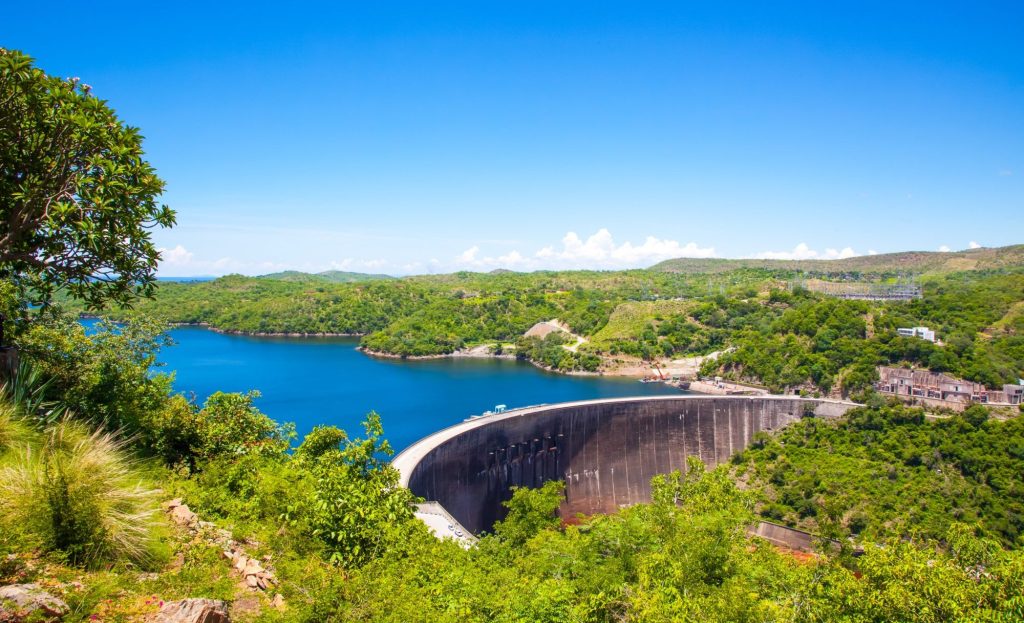Volkswagen and TotalEnergies face risks over ‘limbo’ carbon credits
Carbon-neutral claims for cars, coffee, heating oil and private-jet flights made use of credits from a flawed forest-protection project. Read More

- Carbon credit registry Verra said it issued 15 million excess credits to a project in Zimbabwe.
- The credits were used to substantiate carbon-neutral claims — and it’s not clear how the error will be compensated for.
- Experts say the incident illustrates a lack of safeguards for carbon market participants.
The status of carbon-neutral claims made by Volkswagen, Nespresso and other companies has been thrown into doubt after Verra, the world’s largest carbon credit registry, concluded it had issued millions of excess credits to a contentious forest protection project based in Zimbabwe.
The acknowledgement comes after a series of legal cases in which courts have questioned the legitimacy of carbon-neutral claims based on offsets. “There is a lot of exposure to risk and these companies are vulnerable,” said Daniel Cherrin, a crisis communications expert who focuses on climate issues.
The project at the heart of the case is among the most controversial of recent times. The developer, Carbon Green Investments (CGI), said it would use funds from credits sales to reduce deforestation across almost 2 million acres of land around Lake Kariba, in the northwest of the country. A total of 27 million credits were issued to the project between 2013 and 2021.
Verra launched an investigation in October 2023 after a story in The New Yorker alleged that the project’s broker, South Pole, had “sold millions of credits for carbon reductions that weren’t real” and quoted CGI’s owner as acknowledging illegal money transfers.
Last month, the registry announced the conclusion of the first stage of that investigation: Due to errors in estimating the baseline — the amount of deforestation that would have occurred in the absence of the project — Verra had issued around 15 million more credits to the project than it should have.
Carbon-neutral claims
The news presents a dilemma to companies that purchased credits from the project and used them to make emissions claims.
- Volkswagen retired more than 1 million Kariba credits in 2021 and 2022, at least some of which were used to certify its ID. Buzz and ID. Buzz Cargo vehicles in Europe as carbon neutral.
- Nespresso used almost 400,000 Kariba credits towards a 2021 carbon-neutral claim for its coffee capsules.
- ProxiFuel, a Belgium-based subsidiary of oil and gas supermajor TotalEnergies, used Kariba credits as part of an initiative that allowed customers to offset the carbon footprint of heating oil. The company retired close to 190,000 credits between 2021 and 2023.
- Private-jet rentals company VistaJet, which offered Kariba credits to customers interested in compensating for emissions associated with their travel, retired more than 150,000 credits between 2020 and June 2023.
More than one purchaser also continued to use Kariba credits after the scandal broke, most notably Forum Entertainment, operator of the 17,000-seat Kia Forum in Los Angeles, which retired 22,000 such credits in February. (Forum Entertainment did not return a request for comment.)
The status of those credits, and by extension the claims they were used to make, is now unclear. Verra did not designate specific credits as having been issued in error. Instead, the registry said that all retired credits remain valid and has asked CGI to compensate for the over-issuance by canceling an equivalent number.
“Verra has confirmed to us that the status of retired units, such as those used by Volkswagen, will not change, and no action is required from stakeholders who have already retired them,” said Ruth Holling, a Volkswagen spokesperson.
TotalEnergies declined to comment on steps it would take in connection with Kariba credits it has retired, but added that it stopped using them after the New Yorker article appeared and has asked Verra to cancel the unretired Kariba credits it holds. Nespresso and VistaJet did not return requests for comment.
Contested compensation
Still, it’s unclear whether CGI will fulfill Verra’s compensation request. CGI has asked to see the data behind the investigation and called for a moratorium on compensation in the meantime. The company has withdrawn the Kariba project from the registry and does not have other active projects with Verra, meaning it would be required to purchase Verra credits from other developers, potentially at a cost of millions of dollars.
“Verra has put forward its plan for what it wants other people to do, and the main party, CGI, which is 100 percent necessary to achieving that plan, has indicated they’re not currently satisfied with that,” said Danny Cullenward, a senior fellow with the Kleinman Center for Energy Policy at the University of Pennsylvania. “So we are still in limbo.”
That limbo could have legal consequences. Several large companies, including Apple and BP, have lost court cases in Germany that focused on the quality of credits used to satisfy carbon-neutral claims. In the U.S., Delta Air Lines, Clif Bar and the tobacco company R. J. Reynolds, which sold “carbon-neutral” vapes, are the subject of related litigation. Verra’s conclusion that excess credits were issued, combined with the lack of an immediate remedy, could open the door to new cases focused on carbon-neutral claims that relied on Kariba credits.
Market safeguards
Verra’s investigation has also prompted carbon markets experts to question current safeguards. The registry says its role is to set and enforce standards, not to get involved in issues of commercial responsibility, which it sees as resting with project developers and credit buyers. Some would like to see Verra take more of that responsibility. The registry maintains a “buffer pool” of credits that it holds as insurance against problems with credit integrity, for example, but says it would not be appropriate to use in this case.
“The buffer pool was never designed to compensate for over-issuance of credits,” a Verra spokesperson told Trellis. “Its purpose is to backstop reversal risks: for example, if forest loss or fire reduces the carbon benefits of a project after credits have been issued. In Kariba’s case, there are excess credits that have been issued that can no longer be corrected given the project’s withdrawal from the registry, which we are addressing to remedy separately.”
Other buffer pools, such as those maintained to protect California’s market for compliance carbon credits, can be used more broadly, noted Grayson Badgley, a research scientist at CarbonPlan, a nonprofit that analyzes climate solutions.
“These buffer pools can be really used for any purpose,” Badly said. The underlying premise of the pools, he argued, is that the registry will provide back-up if something happens to a credit that is outside the control of the buyer. “If there’s no one backing it up, then I think the whole thing unravels really quick.”















